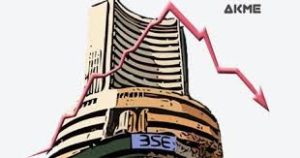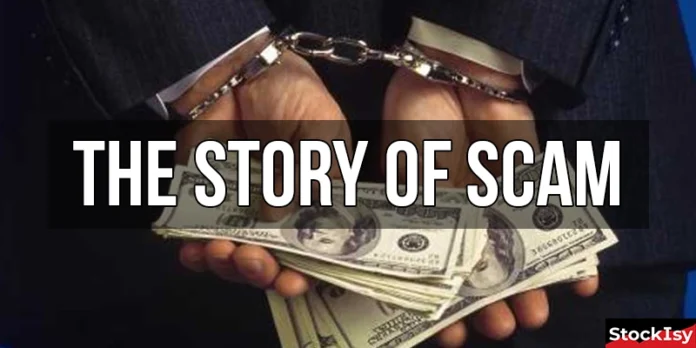Harshad Mehta scam or 1992 securities scam is one of the biggest scams in the history of Indian stock market.
Harshad Mehta the Baap of bank frauds before Nirav Modi.
Harshad Mehta was an Indian stock broker. Harshad Mehta was known as Big Bull of Dalal street. He was born on 29th of July 1954 in a poor family Rajkot District in Gujarat. Harshad Mehta was the son of a peon. Mehta spent his early childhood in Kandivali, Mumbai, whilst his father ran a small business. However, the family had to shift to Raipur in Chhattisgarh for medical reason.
Mehta completed his schooling in Raipur but never showed much promise. He moved back to Mumbai alone after completing school, completed his B.com from Lajpat Rai college & took up odd jobs from selling hosiery to sorting diamonds for the next eight years.
While working as sales person in New India Assurance Company Ltd. He developed the interest in share market & hence after quitting his job in early 1980’s. He joined the stock broker B. Ambalal. Later 1981 he worked as sub-broker to stock broker J.L. Shah & Nandalal Seth. After gaining ample of experience, in 1984 he with his brother, started his own firm named as Grow More Research & Asset Management. Later, he become the member of BOMBAY STOCK EXCHANGE as a broker.
In 1986, he started trading actively. By early 1990, he become a famous stock broker.
The name Harshad Mehta was in the focus of public attention in the year 1992 with a number of financial crimes charged on him. The securities scam of 1991-92 refers to a diversion of bank funds worth Rs.3500/- crore to a group of stock brokers, led by Harshad Mehta. These funds were then put into the stock market selectively causing it to surge to over 4500 points.
On April 23, 1992, journalist SUCHETRA DALAL exposed Mehta’s scam. She is columnist in times of India.

Mehta’s favorite stocks included Associated Cement Company (ACC), Apollo Tyres, Reliance, Hero Honda, tata Iron & steel co (TISCO), BPL, Sterlite, & Videocon, to name a few. The ACC, India’s foremost cement firm, was menta’s favorite. He pumped money into its shares so aggressively that its stocks rose from Rs.200 a share to Rs.9000 a share in three years …. a 4400 percent rise.
Harshad Mehta mainly used these instruments in scam:
Ready Forward Deal (RF Deal):
Harshad Mehta used technique of the RF Deal or Ready Forward Deal in scam. Ready Forward deal was the short-term loan instruments for bank. To know what RF deal is first we will see what government securities are.
Basically, Government Issue’s securities to cover its expenses of various project. They are called as Government Securities. Bond is an example of government securities. In bond, the government raises the fund to cover its expenses, and in return, pay the interest to investors who have invested in these bonds. It was mandatory for all banks to invest in this government securities in those days.
In 1990’s, if any bank was in short of funds (money) then to generate funds, it used to sell its bond or securities to other bank and in return after some days would pay some interest with capital to regain its bond. I will explain this to you with a simple example.
If in case we need urgent money then we go to our nearby jeweler. We keep our jewelry as a collateral to him and take the short-term loan from him. After some days, we return the money to jeweler with the decided interest and then he returns our jewelry back to us. Same was the case with banks. In Ready Forward deal, one bank would give the short-term loan to other bank and keep government bonds of that bank as collateral.
In ready forward deal brokers used to work as mediators between two banks. Brokers work was to find the buyers for banks, willing to sell their securities or bonds and vice-versa find sellers for the banks which are ready to buy the securities. Harshad Mehta was the broker, and used to work as mediator between two banks.
IMPACT OF SCAM ON MARKET
- Sensex fell from 4500 to 2500 losing 1,00,000 crores in market capitalization.
- The liberalization policies were put on hold by the government.
- Inability of Indian companies to raise capital in worlds markets.
- SEBI, the securities market regulator postponed sanctioning of private sector mutual funds.



